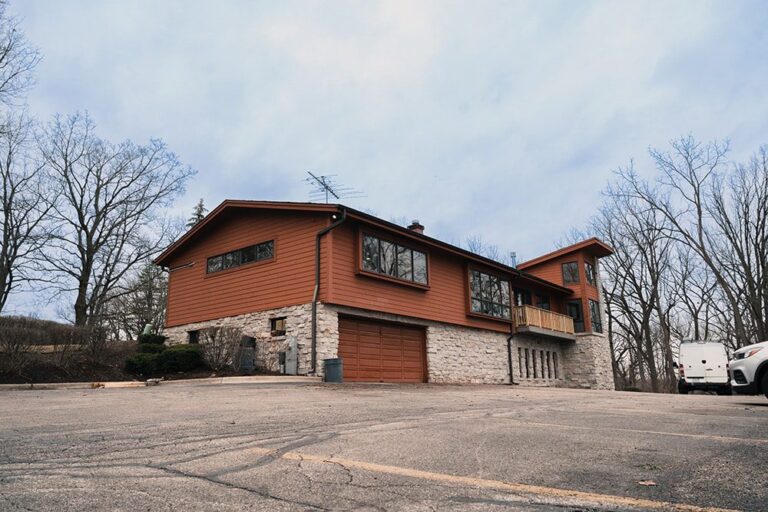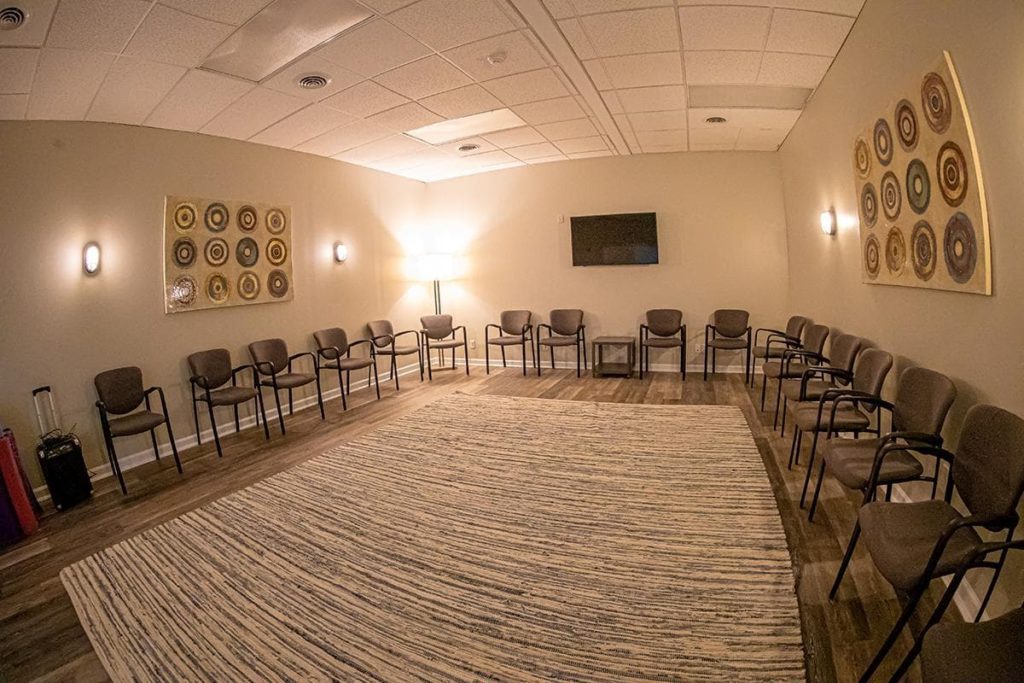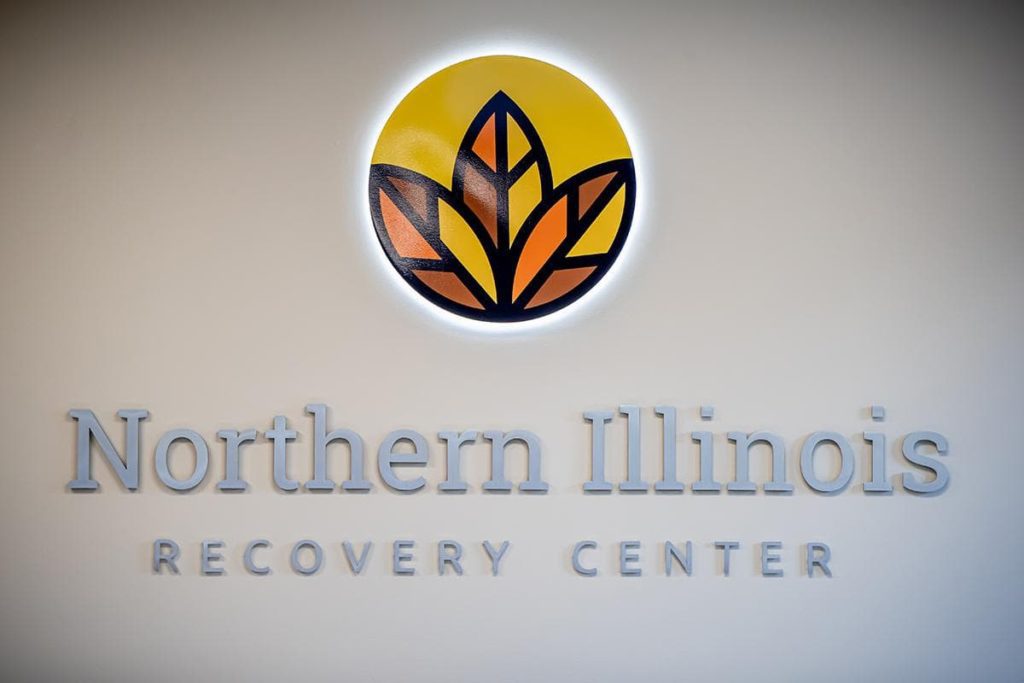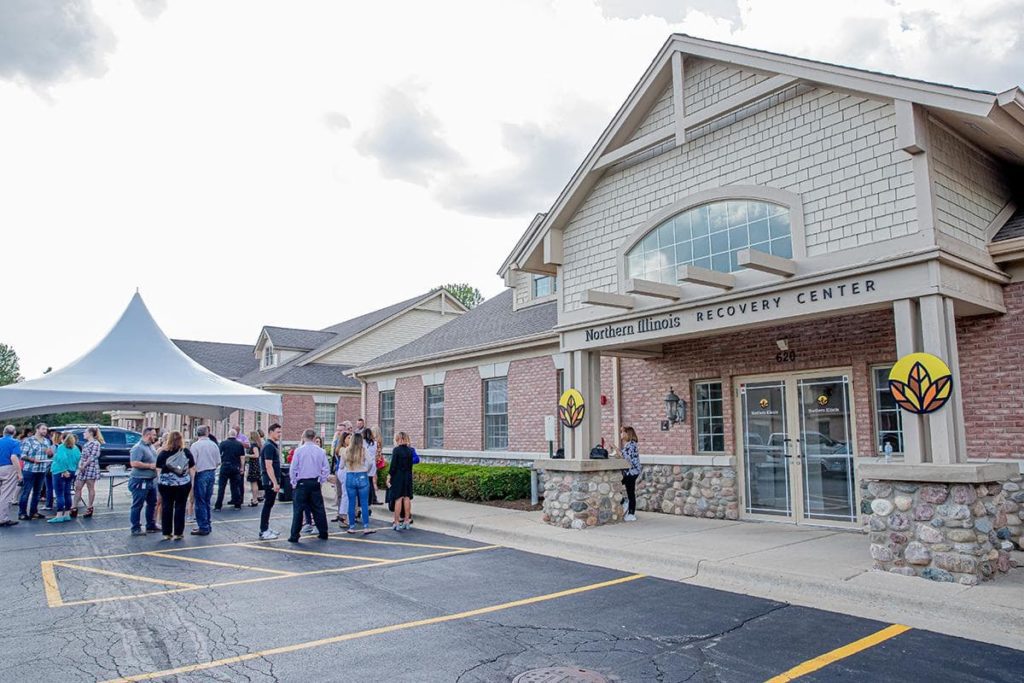This is why it is key for individuals and families to learn to recognize the signs of alcohol addiction and educate themselves on their options for support, like an addiction treatment center.
At Northern Illinois Recovery Center in Crystal Lake, Illinois, we provide compassionate, evidence-based care for individuals struggling with alcohol use disorder. Alcohol addiction affects millions of Americans every year, yet many hesitate to seek help due to stigma, fear, or uncertainty about treatment. Our alcohol rehab in Illinois offers a supportive and structured environment where you can begin your journey to recovery with the guidance of experienced clinicians.
Through a continuum of care comprising a variety of treatment services and therapies, we’re dedicated to helping people effectively overcome the challenges they face with alcohol addiction.

Alcohol Use Disorder and How It Affects Your Health
When it comes to alcohol abuse disorder, people often don’t fully comprehend the dangers associated with long-term drinking. On the other hand, even short-term binge drinking can be deadly. In fact, alcohol poisoning is responsible for approximately six deaths a day. That is a shocking number when you consider all the other harm and health risks that can be attributed to alcohol, such as:
- Stroke
- Liver damage
- Cardiomyopathy
- Alcohol hepatitis
- High blood pressure
- Various types of cancer (throat, mouth, liver, and larynx)
Not only does alcohol affect the body, but it also harms the brain. When people participate in regular drinking, they find it difficult to remember things. They also have a shorter attention span, which then leads to trouble learning. This is particularly harmful to those who are in college. When alcohol abuse disorder occurs, alcohol detox and admission to an alcohol rehab center are an essential part of saving an individual from this life-draining disease.
Alcohol Detox
Alcohol Withdrawal Medication
Quitting Alcohol Cold Turkey
Signs and Symptoms of Alcohol Dependence
Alcohol addiction, also known as alcohol use disorder (AUD), is characterized by an inability to control or stop drinking despite negative consequences. Here are the common symptoms:
Physical Symptoms
- Tolerance: Needing to drink more alcohol to achieve the same effects.
- Withdrawal Symptoms: Experiencing physical symptoms such as nausea, sweating, shakiness, and anxiety when not drinking.
- Neglecting Responsibilities: Ignoring responsibilities at home, work, or school because of drinking.
Behavioral Symptoms
- Craving: Having a strong desire or urge to drink.
- Loss of Control: Drinking more or for a longer period than intended.
- Unsuccessful Attempts to Quit: Making unsuccessful efforts to cut down or stop drinking.
Psychological Symptoms
- Obsessive Thoughts: Spending a lot of time thinking about drinking, obtaining alcohol, and recovering from its effects.
- Continued Use Despite Problems: Continuing to drink even when it causes physical, social, or interpersonal issues.
- Isolation: Withdrawing from friends and activities that were once enjoyable.
Social Symptoms
- Relationship Issues: Experiencing conflicts with family and friends due to drinking habits.
- Legal Problems: Encountering legal issues due to behaviors while intoxicated, such as driving under the influence.
Recognizing these symptoms early can help in seeking treatment and support to overcome alcohol addiction. If you or someone you know is struggling, professional medical advice and intervention are recommended, along with resources such as a sober living home to provide additional structure during recovery.
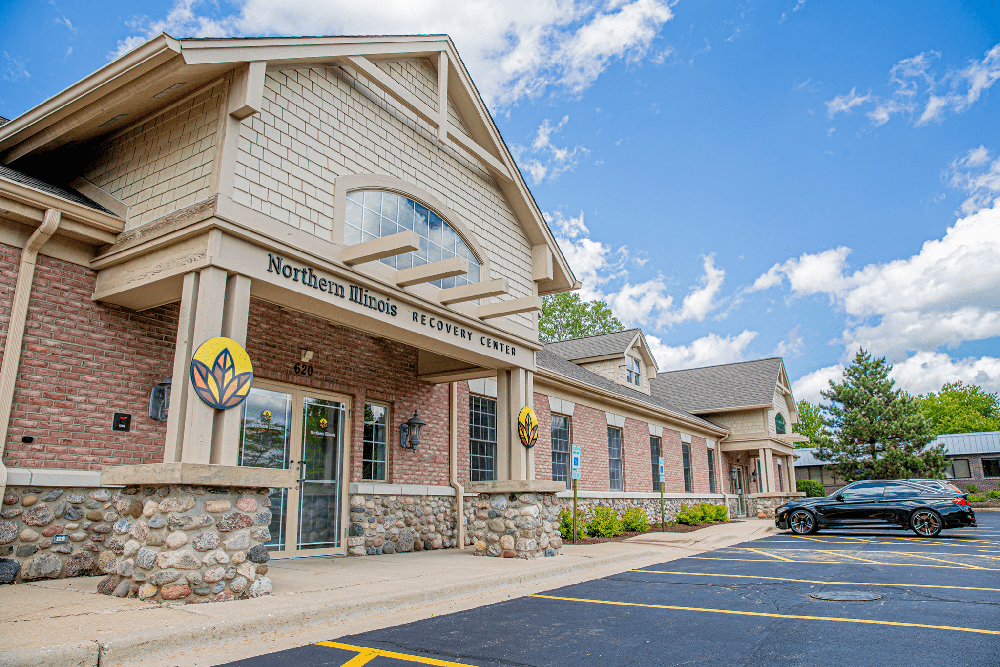


Factors That Affect Alcoholism
- Genetic Factors: Research indicates that genetics can account for approximately 50% of the risk for developing AUD. If there is a family history of alcohol abuse, individuals may inherit genetic predispositions that make them more susceptible to addiction.
- Environmental Factors: Children often learn behaviors by observing their parents and other family members. If they grow up in a household where heavy drinking is normalized, they might adopt similar attitudes and behaviors towards alcohol. Family environments characterized by high levels of stress, conflict, or trauma can contribute to the development of alcohol abuse. Individuals may turn to alcohol as a coping mechanism to deal with negative emotions or stressful situations observed or experienced in their family setting.
- Social and Cultural Factors: Families can influence an individual’s attitudes and beliefs about alcohol consumption. If drinking is seen as an acceptable or necessary part of socializing and coping within the family, individuals are more likely to develop similar patterns.
- Psychological Factors: Mental health issues, such as depression or anxiety, can also run in families. If these conditions co-occur with alcohol abuse within a family, the risk of developing both mental health disorders and alcohol dependency increases.
Understanding The Dangers of Binge Drinking
Impaired judgment and coordination due to excessive alcohol intake elevate the chances of accidents, injuries, and involvement in violent incidents. Binge drinkers are also more likely to engage in risky behaviors, such as unsafe sex, leading to unwanted pregnancies and sexually transmitted infections (STIs). Legal issues, including arrests for drunk driving and public intoxication, are common among those who binge drink.
The long-term health effects of binge drinking are equally alarming. Chronic binge drinking can cause severe liver damage, cardiovascular problems like high blood pressure and heart disease, and cognitive impairments, including memory loss and brain damage.
Dangers of Alcohol Withdrawal
Consuming too much alcohol isn’t good for anyone. However, this doesn’t mean that stopping alcohol use on your own is advisable. Regular alcohol abuse is a major concern due to how dangerous withdrawal can be. When a person stops using alcohol abruptly, the changes that happen to the body could lead to death if not properly managed. Symptoms of alcohol withdrawal can include:
- Fever
- Tremors
- Seizures
- Confusion
- Hallucinations
- Irregular heartbeats
Delirium Tremens
One major concern with unmanaged alcohol withdrawal is a condition called Delirium Tremens (DT). This condition can lead to death in some withdrawal cases. The condition causes the body to go through an intense fight-or-flight response instead of a controlled withdrawal. This is why it is never recommended for a person who has developed a physical alcohol dependence to quit cold turkey. Instead, medical detox is the safer way to cease alcohol use.

Take a Self-Test for Alcohol Addiction Today

Diagnosing Alcohol Use Disorder
- Feelings of powerlessness regarding one’s amount of alcohol use
- Declining invitations to social outings or abandoning hobbies that they used to enjoy
- Having a desire to decrease the amount of alcohol they consume or stop completely, yet being unable to
- Using alcohol despite being in high-risk situations, such as behind the wheel of a car
- Devoting a significant amount of time and money to drinking alcohol
- Needing to drink more alcohol over time to feel the same effects due to an increase in tolerance
- Craving alcohol when not currently drinking
- Experiencing symptoms of withdrawal, such as cravings, sweating, shaking, or nausea, when discontinuing alcohol use
- Productivity problems at work or school, or problems at home, due to drinking
- Drinking to alleviate withdrawal symptoms and cravings
- Using alcohol even when it creates physical, social, relationship, or personal problems
The more signs a person displays, the more severe their alcohol use disorder will be considered. Additionally, cases of alcohol use disorder range from mild to moderate or severe. In many cases, individuals with moderate or severe issues with alcohol dependence can benefit from inpatient addiction treatment. The classification, however, will depend on how many of the 11 criteria a person meets.
Facility Tour
Inpatient Campus
![]() 16 Bedrooms
16 Bedrooms
![]() Only 41 miles from O’Hare Airport
Only 41 miles from O’Hare Airport
![]() Luxury Amenities
Luxury Amenities
![]() See more images
See more images







Outpatient Campus
Northern Illinois Recovery Center offers a wide range of treatment options in our state-of-the-art and unique facility.
![]() 16 Bedrooms
16 Bedrooms
![]() Only 41 miles from O’Hare Airport
Only 41 miles from O’Hare Airport
![]() Luxury Amenities
Luxury Amenities
![]() See more images
See more images

Alcoholism and Mental Health
SAMHSA emphasizes the importance of integrated treatment approaches to effectively address co-occurring disorders, such as alcohol addiction, and mental health issues like depression or anxiety.
Understanding Dual Diagnosis
Alcohol addiction and mental health disorders often influence each other. For example, someone with depression might use alcohol to self-medicate, which can lead to dependency. Conversely, chronic alcohol abuse can exacerbate or trigger mental health issues such as anxiety or depression.
Some of the most common mental health conditions that co-occur with alcohol addiction include depression, anxiety disorders, bipolar disorder, PTSD (post-traumatic stress disorder), and schizophrenia. Treatment centers typically offer dual diagnosis treatment programs that focus on treating both addiction and mental health disorders.
How to Help Someone With Alcohol Use Disorder
Before approaching the person, educate yourself about alcohol addiction. Understanding the condition can help you have a more informed and compassionate conversation.
Select a quiet, private setting where you can talk without interruptions. Ensure that both of you are calm and not under the influence of alcohol.
Start the conversation by expressing your concern and care for their well-being. Use “I” statements to avoid sounding accusatory. For example, “I’ve noticed you’ve been drinking more lately, and I’m really worried about you.”
Mention specific behaviors or incidents that have raised your concerns. Avoid making generalizations or judgments. For example, “Last week, you missed work because you were hungover.”
Allow the person to share their feelings and perspectives without interrupting. Show empathy and understanding. Offer your support and let them know you are there to help.
While offering support, avoid enabling behaviors such as making excuses for them or providing financial assistance that could be used to buy alcohol.
Encourage the person to seek professional help from a doctor, therapist, or addiction specialist. Offer to help them find resources or accompany them to appointments if they are open to it.
Understand that change takes time, and the person may not be ready to accept help immediately. Continue to express your concern and support without pressuring them.
Supporting someone with an addiction can be emotionally draining. Make sure to take care of your own mental and emotional well-being and seek support if you need it.
Approaching someone with alcohol addiction requires compassion and patience. Remember that your goal is to offer support and encourage them to seek help, not to judge or criticize them.

Alcohol Addiction Treatment at Northern Illinois Recovery
- A supportive, stigma-free environment
- Experienced addiction specialists and therapists
- Flexible outpatient treatment options
- Focus on long-term recovery and relapse prevention
- Connection to community resources and sober support networks
Our programs are designed to meet you where you are in recovery. We offer flexible levels of care that enable you to receive treatment while continuing to fulfill your responsibilities at home, school, or work. We offer the following services:
- Medical Detox: Safe withdrawal management by professionals.
- Residential Treatment: Inpatient rehab is ideal for individuals with moderate to severe addiction, co-occurring disorders, or those who need a stable setting away from triggers and distractions.
- Outpatient Program (OP): Flexible therapy and support as you transition back into daily life.
- Partial Hospitalization Program (PHP): Structured treatment during the day with evening return home.
Intensive Outpatient Program (IOP): A step-down level of care with therapy multiple times per week. - Dual Diagnosis Treatment: Care for individuals with both alcohol addiction and co-occurring mental health conditions.
Therapies
We use evidence-based practices and holistic methods to support lasting recovery:
- Individual therapy and group counseling
- Family therapy and education
Cognitive Behavioral Therapy (CBT) - Dialectical Behavior Therapy (DBT)
- Relapse prevention planning
- Holistic therapies such as mindfulness, yoga, and wellness programs
Alcohol Addiction Treatment FAQs
Here are some common questions individuals often ask about alcohol addiction treatment:
If alcohol is interfering with your health, relationships, work, or daily responsibilities, it may be time to seek professional support. A clinical assessment can determine the right level of care for your needs.
Yes. Our outpatient and intensive outpatient programs are designed to accommodate work, school, and family obligations while still providing structured treatment.
Traditional inpatient rehab requires people to live at a facility full-time, while outpatient treatment at Northern Illinois Recovery allows for those in treatment to receive care during the day or evening and return home afterward.
Excessive drinking can worsen the symptoms of depression, anxiety, and other mental health conditions. Many people with alcohol use disorder also have a co-occurring mental health diagnosis that requires integrated treatment.
Recovery is ongoing. After completing a program, we connect you with aftercare services (such as alumni groups, community support, sober living options, and continued therapy) to help you maintain long-term sobriety.
Yes. Your privacy is a top priority, and all treatment is conducted in compliance with HIPAA and confidentiality regulations.
In many cases, yes. Most major insurance providers offer coverage for alcohol addiction treatment. The extent of coverage depends on your individual plan. Our admissions team can verify your insurance benefits and help you understand your options before you begin treatment.
Seek Treatment at Our Alcohol Rehab in Illinois
We believe finances should never stand in the way of getting help. Our team can quickly verify your insurance benefits and explain your options so you can focus on what matters most: your recovery. Sobriety is possible, and our compassionate team is here to support you every step of the way. Contact us today.









